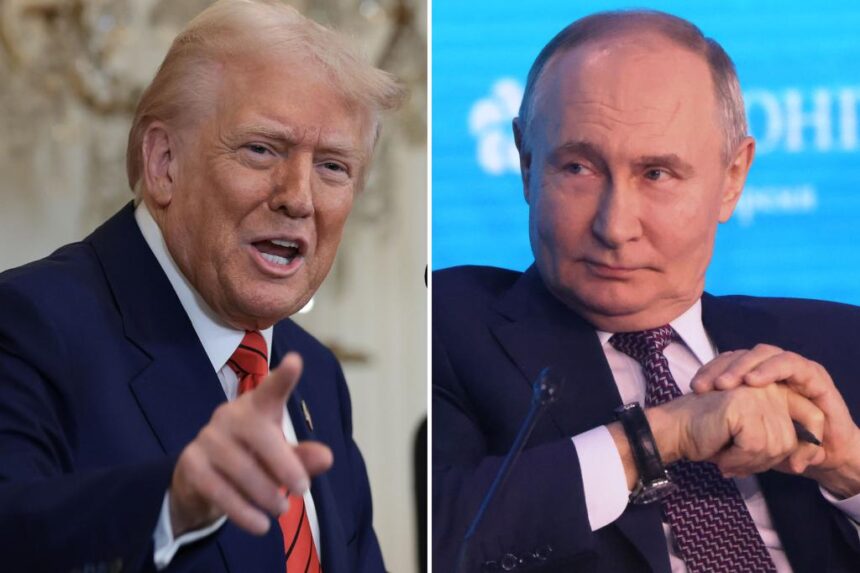Russian President Vladimir Putin has made it clear that he rejects President Trump’s proposed 30-day cease-fire in Ukraine, stating that the West must stop arming Kyiv before the Kremlin would consider such an arrangement. While Putin indicated that Moscow was willing to “cease hostilities,” he emphasized that any agreement must lead to a long-term peace and address the root cause of the initial crisis.
Specifically, Putin demanded guarantees that Ukraine would not mobilize, train soldiers, or receive weapons during the 30-day cease-fire period. This stance was taken as US special envoy Steve Witkoff arrived in Moscow for cease-fire talks with Russian leaders. Putin’s top aides criticized Trump’s proposal, calling it “useless to everyone” and stating that it only benefits the Ukrainian military.
Congressional Republicans had initially celebrated Trump’s success in getting Ukraine to agree to a cease-fire, highlighting peace in Ukraine as a priority for the administration. However, Russia’s refusal to sign off on the proposed deal raised concerns about the effectiveness of the cease-fire in achieving lasting peace.
Despite mixed reactions in Ukraine to the proposed cease-fire, the agreement was seen as a good-faith effort to show readiness for peace. Trump emphasized that it was now up to Russia to agree to the cease-fire and bring peace to the region. Some experts suggested that if Russia refused to cooperate, increased economic pressure, such as tightening sanctions on Russia’s oil revenue, may be necessary.
While some Ukrainian officials and defense experts viewed the cease-fire as a signal of readiness for peace, many troops on the ground expressed a strong commitment to defending their homeland. Ukrainian Foreign Intelligence Service chief Oleh Ivashchenko pointed out that it was Russia, not Ukraine, that needed a pause in hostilities to regroup and potentially launch new aggression.
In response to Trump’s efforts to secure a cease-fire, GOP Russia hawk Rep. Joe Wilson commended the President for offering Putin a path to peace. However, he criticized Putin for his aggressive intentions towards Ukraine, stating that the Russian leader does not seek peace but rather desires control over Ukraine.
Overall, the situation in Ukraine remains complex, with conflicting interests and motivations on both sides. As diplomatic efforts continue, the path to a lasting peace in the region remains uncertain.






